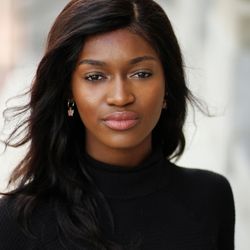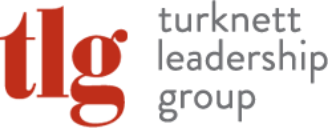
Meet the newest member of the TLG team, Karine Dieuvil, Creative Operations Manager. Karine’s passion is people, and she is excited to join a team and organization where she knows she’ll be impacting the lives of individuals through leadership development. Karine recently moved from Florida in search of new opportunities for her blooming career. It’s no coincidence she landed in Atlanta, and we’re so excited to have Karine join our team. Her many talents will help us to drive our vision and mission forward. We interviewed Karine to get a glimpse into her storied background, her passion for community, and how she is making design more accessible.
Q: How are you able to combine being an actress, a community organizer, and a creative producer, all while completing an MBA?
Being a very passionate person who has been called towards many different gifts is a blessing that I have taken received with the utmost intentionality. I never want to show up as my half best self, so juggling these responsibilities required transparency with my time, boundaries with my responsibilities, a ridiculous amount of time management, and remaining authentic to my pursuits within all these endeavors. I’m also a very spiritual person, and my faith has grounded me in a lot of the overwhelming times of my life. So, when I am having the opportunity to work on an abundance of things that fulfill me, I’ve leaned on my faith for the support I needed to see those commitments through.
Q: What’s it like being a creative director/content creator?
It’s an absolute blast. It feels like some sort of magic trick, it’s to take ideas and synthesize them into a format that people can connect to and see themselves in. I have always loved the capacity that content creation has for developing niche audiences and communicating complex ideas in a profoundly digestible format. If I’m being honest with myself, I’ve been creative directing since I was a child! The very first production I put on was at six years old, in the backyard of my neighborhood with over 10 children from my cul-de-sac. Although we didn’t have a lot of money, as kids in the barrio we certainly had a lot of time, and I was never short of ideas for shows to put on. I had the help of many children to perform them in the summer months living in Miami. This is just to say that I’ve always had a love of storytelling, and captivating a message through a body of art. The older I’ve become the scale and amount of people willing to invest in it have grown, but intrinsically I have always remained someone who loves to see the world in the ways that it can be and seeks to tell stories that represent all the multitudes that exist within that.
Q: Tell us about the move from Florida to GA, why GA?
Well for starters, if you’re asking me whether I prefer beaches over mountains, its mountains any day! I was born in Miami, Florida but raised by immigrants from Haiti and the Dominican Republic. The cultural diversity of Florida kept me in the state for a very long time because I felt a sense of community and home there. Luckily, I’ve been able to find that in Georgia, and so much more! I wanted to move to a midsize city that provided opportunities for high growth, connections with people in my industry to build community with, and a strong history of mutual aid and grassroots efforts
Q: What drew you to TLG? What kind of impact do you hope to have?
I desire to step into a workplace that I can contribute making a difference with. The ability to empower others to actualize the depths of their potential pushes me to serve as a stronger teammate, and leader within an organization. I was drawn to TLG due to the unique work culture that prides itself on authenticity, mentorship and radical accountability to yield real-results. The Women in Leadership program affirmed I was in the right place, as a historical pioneer in pushing women to not only step up as leaders, but to support one another in their continued success establishing and leading strong, competitive firms.
Q: You have an extensive background in non-profit – how are you giving back to the community today?
I have always been involved in food-based justice work due to my own experiences battling food insecurity in my childhood. This has resulted in thousands of hours dedicated to developing, sustaining, and financing the Gainesville Free Grocery Store, a mutual aid coalition that now serves over 400 families in the city of Gainesville. I’ve continued to use my background in education to discover new ways of pouring back into my community. I’m currently developing a free adult financial literacy program, specifically geared at low-income earners with families seeking economic mobility. I want to find ways to intersect my talents with my passions as much as possible and remain grounded in the gifts given to me. I also plan to continue to produce under my nonprofit organization Lighthouse Productions, which seeks to highlight marginalized voices by offering opportunities for novel short stories to be told on a larger scale.
Q: Why is accessible design so important to you? How do you incorporate it into your creative process?
Maybe it’s because I often would find myself dozing at the thought of subject matter that excited me, but I was not compelled to read! Or the fact that I have grown up with a sibling with Autism and understood how inaccessible the world could be to their differences. Or perhaps, it’s because I deeply desire to be heard and understood and was consistently looking for the best way for those ideas to be received. It’s more likely all the above and more. Accessibility is prioritizing the practices that provide a message in formats that allow people of different abilities to experience all aspects of the content. This means requiring a holistic perspective, understanding the essence of your message, and being dedicated to the meticulous cross points of information and the variety of ways that can be translated. For me, this looks like creating designs that are not only aesthetically pleasing, but easy to read and digest. Allowing everybody by the end of the presentation to feel like an expert on the topic, by breaking down the most complex data or formulations into easy-to-understand conclusions. Accessibility means not making assumptions about your audience: providing audio, visual, and additional sensorial elements to your work to provide the most robust presentation of your ideas.

